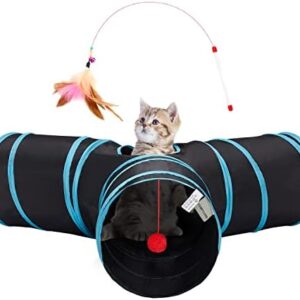
If you have ever owned a cat, you would know that these creatures can have quite the temper at times. From hissing and growling to scratching and biting, feline aggression is a common issue that many pet owners face. So how can you manage and deal with aggressive cats? Let’s explore some tips and tricks to help you navigate this challenging behavior.
First and foremost, it is important to understand why your cat is displaying aggressive behavior. Cats can become aggressive for a variety of reasons, including fear, stress, pain, or territorialism. By identifying the underlying cause of your cat’s aggression, you can better address the issue and find a solution that works for both you and your feline friend.
One common reason for feline aggression is fear. Cats are naturally skittish creatures, and they may lash out when they feel threatened or scared. If your cat is acting aggressively out of fear, it is important to create a safe and secure environment for them. This can include providing hiding spots, using calming pheromone diffusers, and giving your cat plenty of space to retreat to when they feel anxious.
Stress can also be a major factor in feline aggression. Cats are sensitive animals and changes in their environment or routine can trigger stress and anxiety. To help your cat manage their stress levels, try to maintain a consistent routine, provide plenty of mental and physical stimulation, and create a calm and peaceful home environment.
Pain is another common cause of aggression in cats. If your cat is acting aggressively, it is important to rule out any underlying medical issues that may be causing them discomfort. Take your cat to the vet for a thorough check-up to ensure that they are in good health and address any pain or discomfort that they may be experiencing.
Territorial aggression is also a common issue among cats, especially in multi-cat households. Cats are territorial animals and may become aggressive towards other cats in their environment in an attempt to establish dominance. To manage territorial aggression, provide each cat with their own space and resources, such as food bowls, litter boxes, and sleeping areas. This can help prevent conflicts and reduce tension between your feline companions.
Once you have identified the underlying cause of your cat’s aggression, it is important to develop a plan to manage and address the behavior. Here are some tips to help you deal with aggressive cats:
1. Avoid triggering situations: Pay attention to your cat’s body language and behavior to identify triggers that may lead to aggression. If you notice that your cat becomes agitated in certain situations, try to avoid or minimize exposure to these triggers.
2. Provide plenty of mental and physical stimulation: Cats are active and curious animals that need plenty of mental and physical stimulation to stay happy and healthy. Make sure to provide your cat with interactive toys, scratching posts, and regular playtime to help them release their pent-up energy and prevent aggression.
3. Use positive reinforcement: When dealing with aggressive behavior, it is important to use positive reinforcement to encourage good behavior. Reward your cat with treats, praise, and affection when they display calm and non-aggressive behavior to reinforce positive habits.
4. Establish a routine: Cats thrive on routine and consistency, so establishing a regular feeding, play, and grooming schedule can help reduce stress and anxiety and prevent aggression.
5. Seek professional help: If you are struggling to manage your cat’s aggression on your own, consider seeking help from a professional animal behaviorist or veterinarian. They can provide valuable insights and strategies to help you address your cat’s aggressive behavior and improve your relationship with your furry friend.
Dealing with aggressive cats can be a challenging and frustrating experience, but with patience, understanding, and the right approach, you can help your feline companion learn to manage their aggression and enjoy a happier and healthier life. By addressing the underlying cause of your cat’s aggression, providing plenty of mental and physical stimulation, using positive reinforcement, establishing a routine, and seeking professional help when needed, you can effectively manage and deal with feline aggression and create a harmonious relationship with your furry friend.






